Abstract
Prospects for research advances in alcoholism are very promising, because of the explosion in the neurosciences and advances in epidemiology and typology of the disorder. For example, the field is now ready for molecular genetics studies of the early onset form of alcoholism that is transmitted from father to son with high penetrance. Leading neuroscientists are being recruited into alcoholism research. Paradoxically, this time of new hope coincides with challenges to the scientific enterprise, such as the animal rights movement and impatience with the scientific process in the face of the public health emergencies represented by acquired immunodeficiency syndrome (AIDS) and drug abuse. The emergence of genetically based subtypes of alcoholism suggests that at least two discrete illness processes are involved. Mounting evidence from spinal fluid studies has rekindled interest in a key role for serotonin in the early onset form of alcoholism. One hypothesis now being explored is that genetically low brain serotonin function may be part of the predisposition to this form of alcoholism. It is known that acute alcohol intake transiently increases brain serotonin turnover. Thus, drinking might be viewed as an attempt to correct a deficit, only to produce further serotonin depletion as the drug's effect wears off, setting up a vicious cycle of repeated attempts to self-medicate. Impulsive, violent, and suicidal behavior as well as alcohol abuse are associated with the low brain serotonin activity. Persons with these problems suffer from circadian rhythm and glucose metabolism disturbances that may also be mediated by serotonin. New pharmacological probes are now available to tease out the mechanisms of altered serotonin function.(ABSTRACT TRUNCATED AT 250 WORDS)
Full text
PDF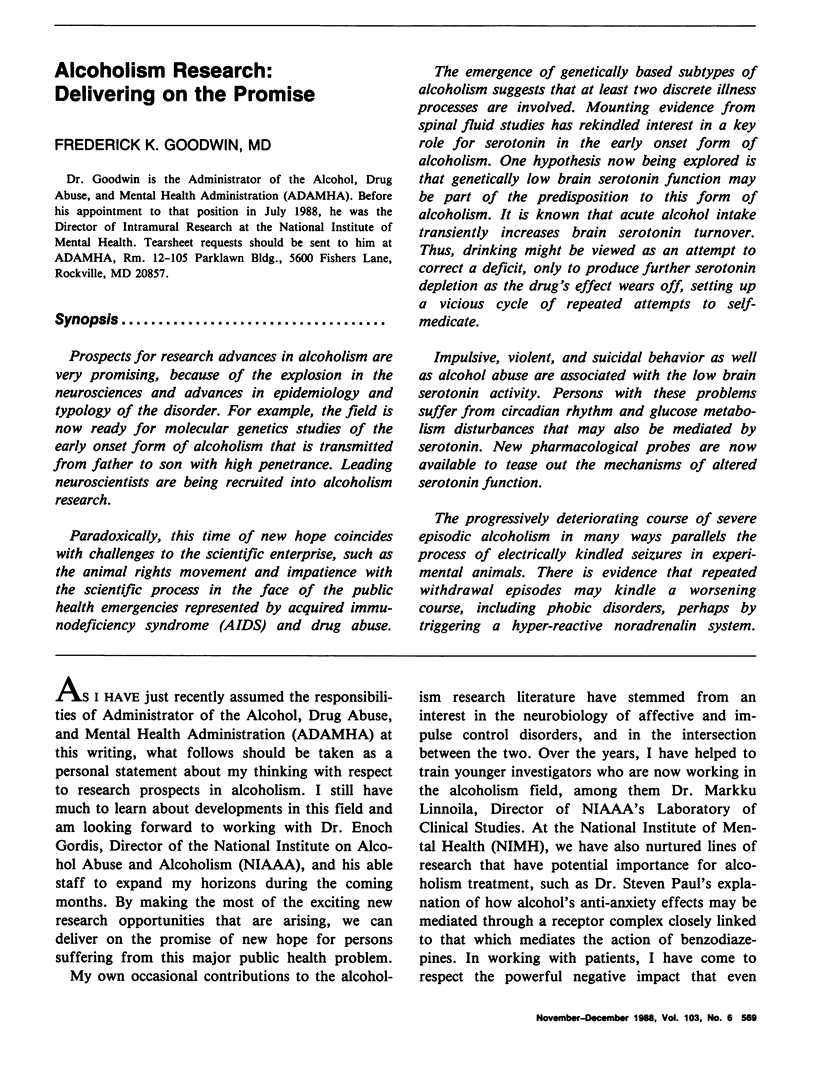
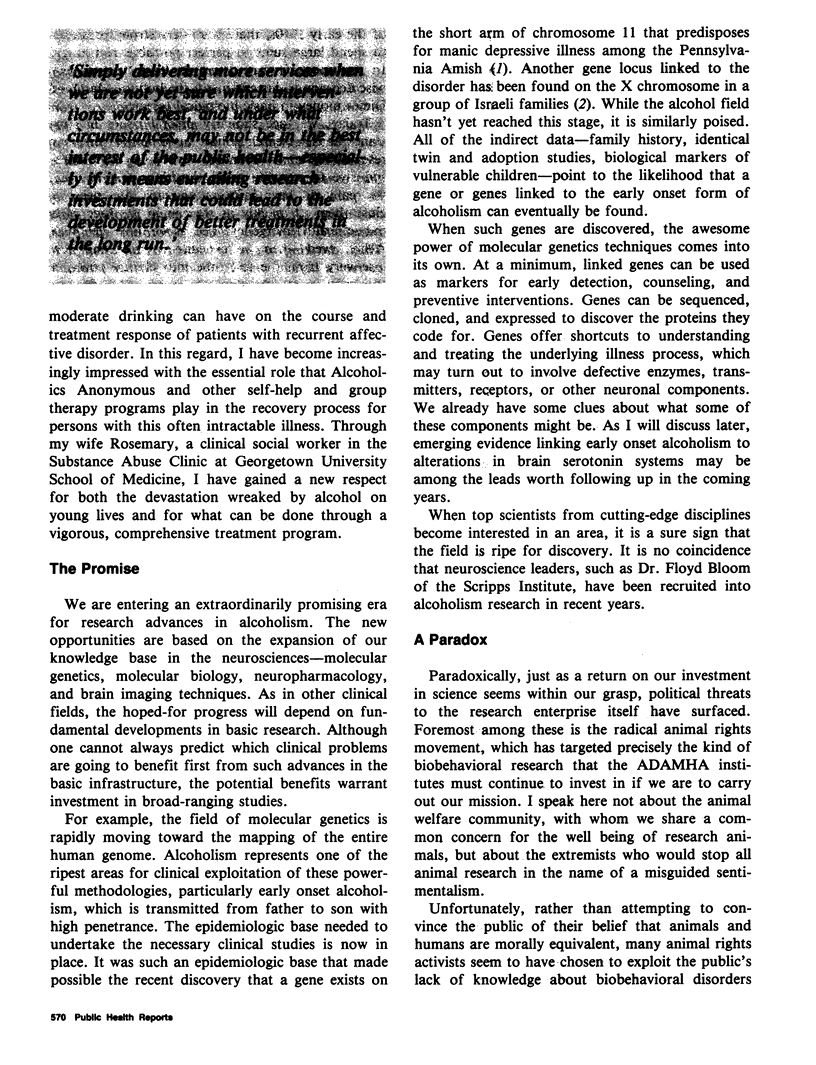
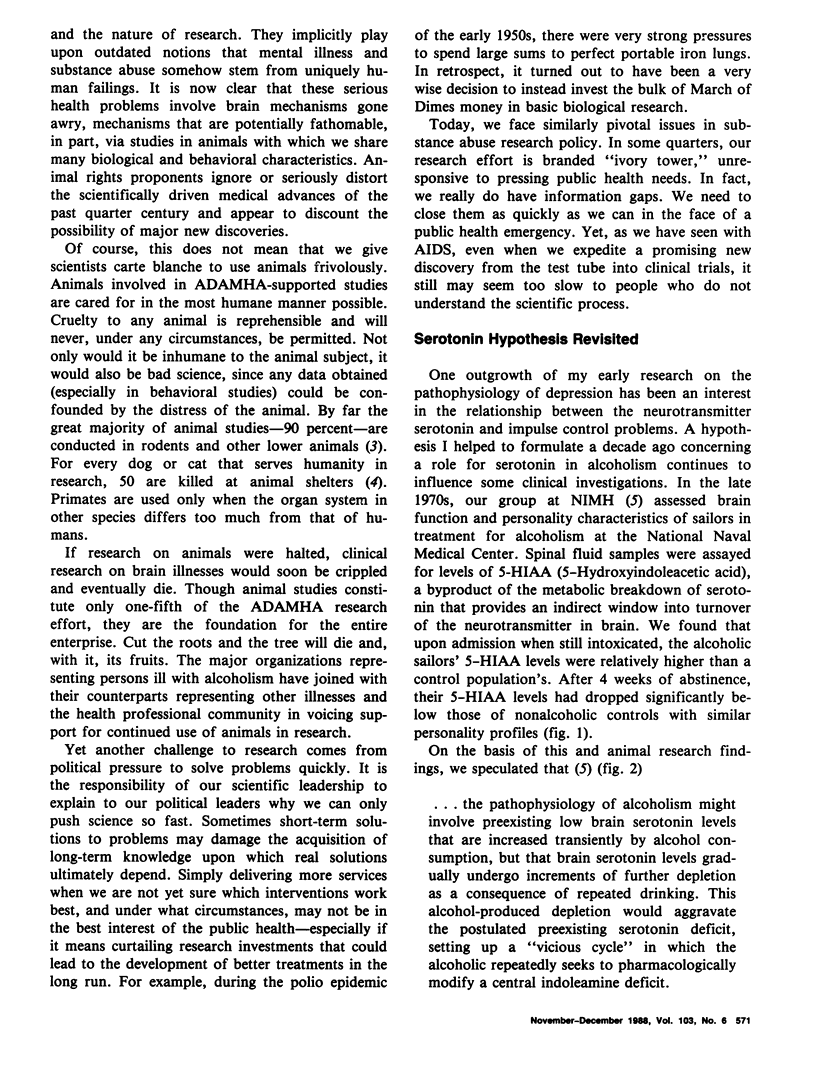
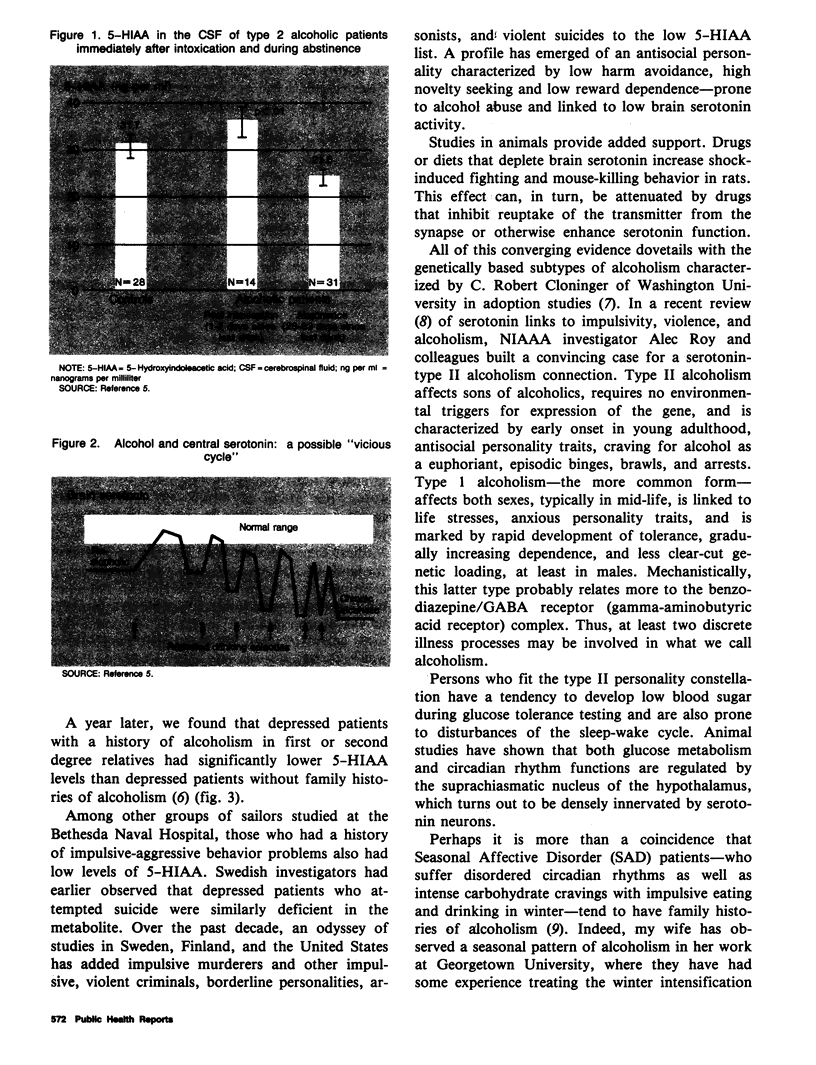
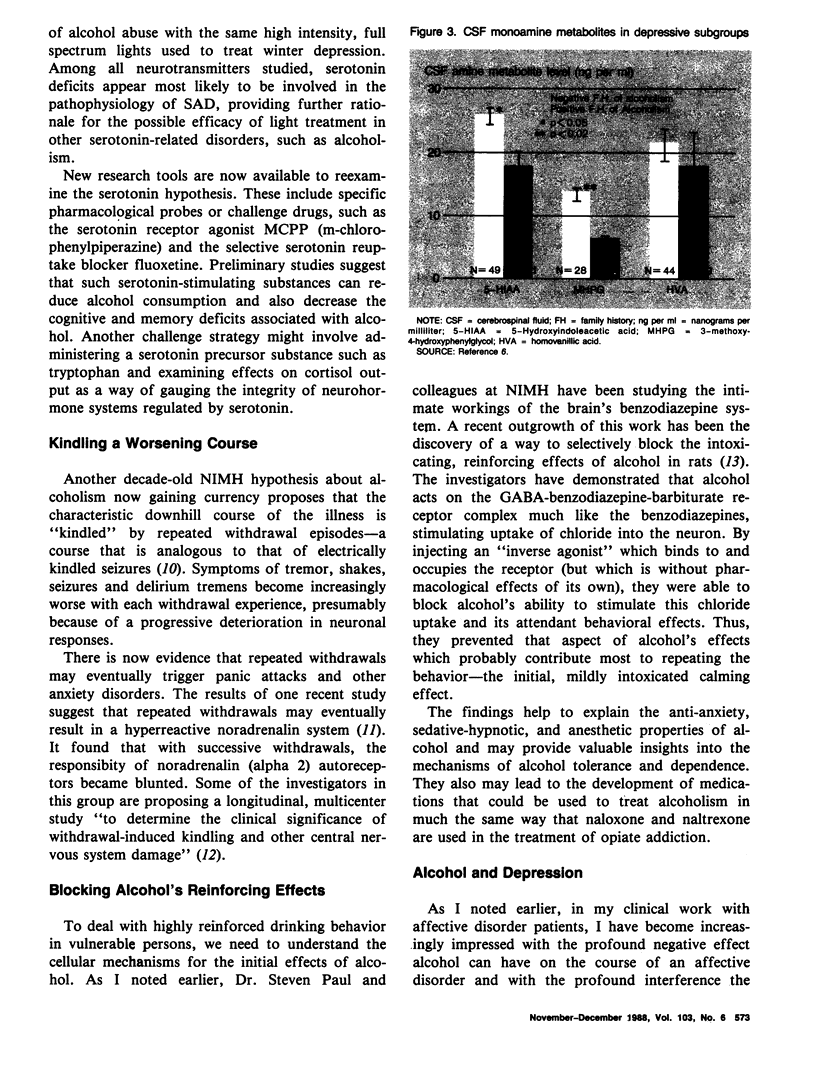
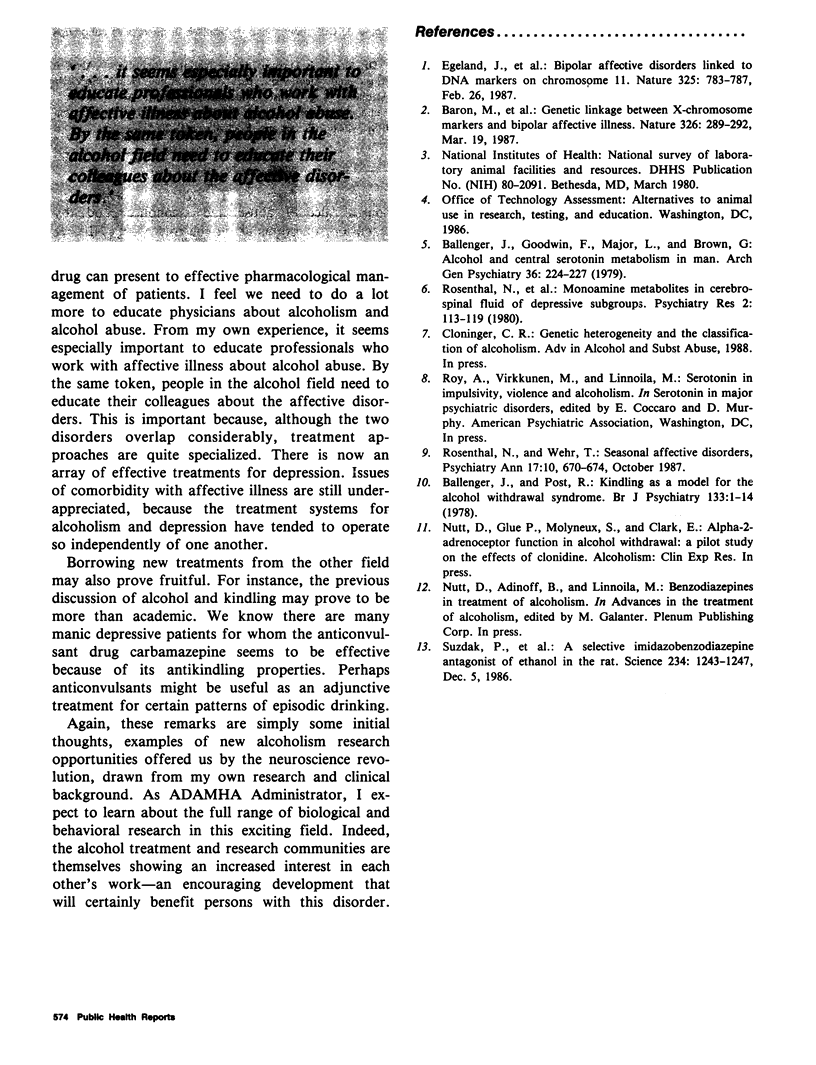
Selected References
These references are in PubMed. This may not be the complete list of references from this article.
- Ballenger J. C., Goodwin F. K., Major L. F., Brown G. L. Alcohol and central serotonin metabolism in man. Arch Gen Psychiatry. 1979 Feb;36(2):224–227. doi: 10.1001/archpsyc.1979.01780020114013. [DOI] [PubMed] [Google Scholar]
- Ballenger J. C., Post R. M. Kindling as a model for alcohol withdrawal syndromes. Br J Psychiatry. 1978 Jul;133:1–14. doi: 10.1192/bjp.133.1.1. [DOI] [PubMed] [Google Scholar]
- Baron M., Risch N., Hamburger R., Mandel B., Kushner S., Newman M., Drumer D., Belmaker R. H. Genetic linkage between X-chromosome markers and bipolar affective illness. Nature. 1987 Mar 19;326(6110):289–292. doi: 10.1038/326289a0. [DOI] [PubMed] [Google Scholar]
- Egeland J. A., Gerhard D. S., Pauls D. L., Sussex J. N., Kidd K. K., Allen C. R., Hostetter A. M., Housman D. E. Bipolar affective disorders linked to DNA markers on chromosome 11. 1987 Feb 26-Mar 4Nature. 325(6107):783–787. doi: 10.1038/325783a0. [DOI] [PubMed] [Google Scholar]
- Rosenthal N. E., Davenport Y., Cowdry R. W., Webster M. H., Goodwin F. K. Monoamine metabolites in cerebrospinal fluid of depressive subgroups. Psychiatry Res. 1980 Mar;2(1):113–119. doi: 10.1016/0165-1781(80)90012-8. [DOI] [PubMed] [Google Scholar]
- Suzdak P. D., Glowa J. R., Crawley J. N., Schwartz R. D., Skolnick P., Paul S. M. A selective imidazobenzodiazepine antagonist of ethanol in the rat. Science. 1986 Dec 5;234(4781):1243–1247. doi: 10.1126/science.3022383. [DOI] [PubMed] [Google Scholar]


